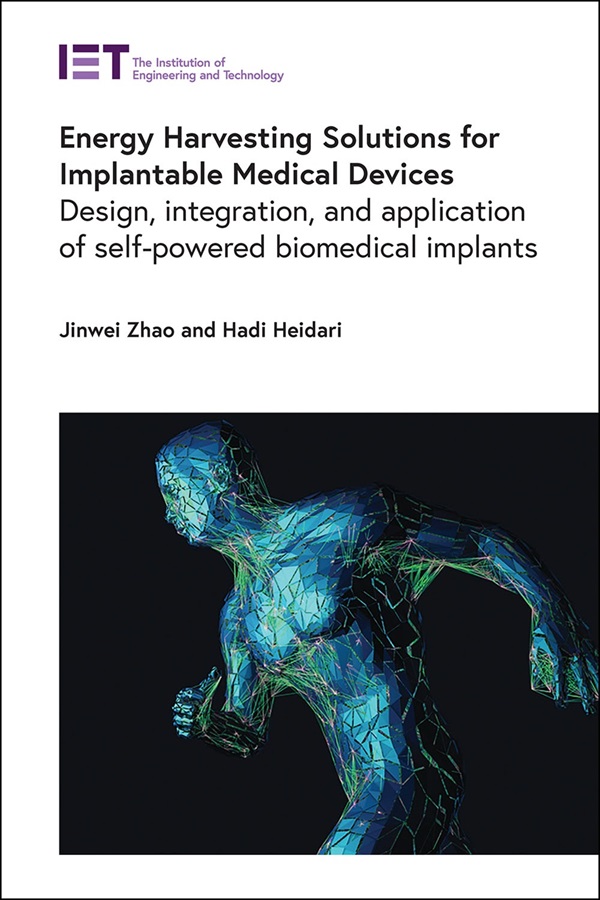- Agricultural Engineering and Technology
- Applied Physics
- Built Environment
- Computing and Networks
- Control, Robotics and Sensors
- Electrical Regulations
- Electromagnetics and Radar
- Energy Engineering
- Healthcare Technologies
- History and Management of Technology
- IET Codes and Guidance
- Manufacturing
- Materials, Circuits and Devices
- Model Forms
- Security
- Telecommunications
- Transportation

Energy Harvesting Solutions for Implantable Medical Devices
Design, integration, and application of self-powered biomedical implants
by Jinwei Zhao, Hadi Heidari
Implantable devices are becoming more prevalent in the monitoring and treatment of patients with chronic diseases such as heart failure, diabetes and cancer. Conventional implantable devices are battery-powered, but these batteries can suffer from a short lifespan, bulky size, or leakage hazards. Energy harvesting technologies are therefore emerging as an alternative to battery-powered devices.
This book details the current availability of implantable devices with energy harvesting technologies used in modern therapy and treatment, and how to manage and control the quality and risk during design, manufacture, and validation. With chapters on kinetic energy, thermal energy, photovoltaic energy, biofuel energy, RF energy and wireless power transfer in implantable applications, the authors demonstrate how these technologies can harvest sufficient energy from the host human body which can be used to power implantable devices. Energy harvesting in different modern biomedical implantable applications is discussed and illustrated with examples which outline the benefits and drawbacks of energy harvesters used to power implantable devices.
Energy Harvesting Solutions for Implantable Medical Devices: Design, integration, and application of self-powered biomedical implants provides a useful overview of these developing technologies for an audience of biomedical engineers, researchers, clinicians and advanced students.
About the Author
Jinwei Zhao is a senior electronics engineer at Imperial Brands PLC, focusing on next-generation heating tobacco devices and low-temperature vaping systems. He holds a PhD in Electrical and Electronics Engineering from the University of Glasgow. His previous roles include senior bioelectronics engineer at QV Bioelectronics and Research assistant at the State Key Laboratory of Analog and Mixed-Signal VLSI (University of Macau). He has published extensively in IEEE and Wiley journals and received the IEEE PRIME Silver Leaf Award and Wiley's Most Downloaded Paper Award.
Hadi Heidari is a professor of nanoelectronics in the James Watt School of Engineering, University of Glasgow, UK. He is a senior member of IEEE and a member of the RSE Young Academy of Scotland. He has published over 300 peer-reviewed publications, patents, book chapters and presentations and has been on the technical committee and organising committees of numerous international conferences. He has been the recipient of several awards, including the 2020 IET's JA Lodge Award.
Publication Year: 2025
Pages: 210
ISBN-13: 978-1-83953-685-4
Format: HBK
